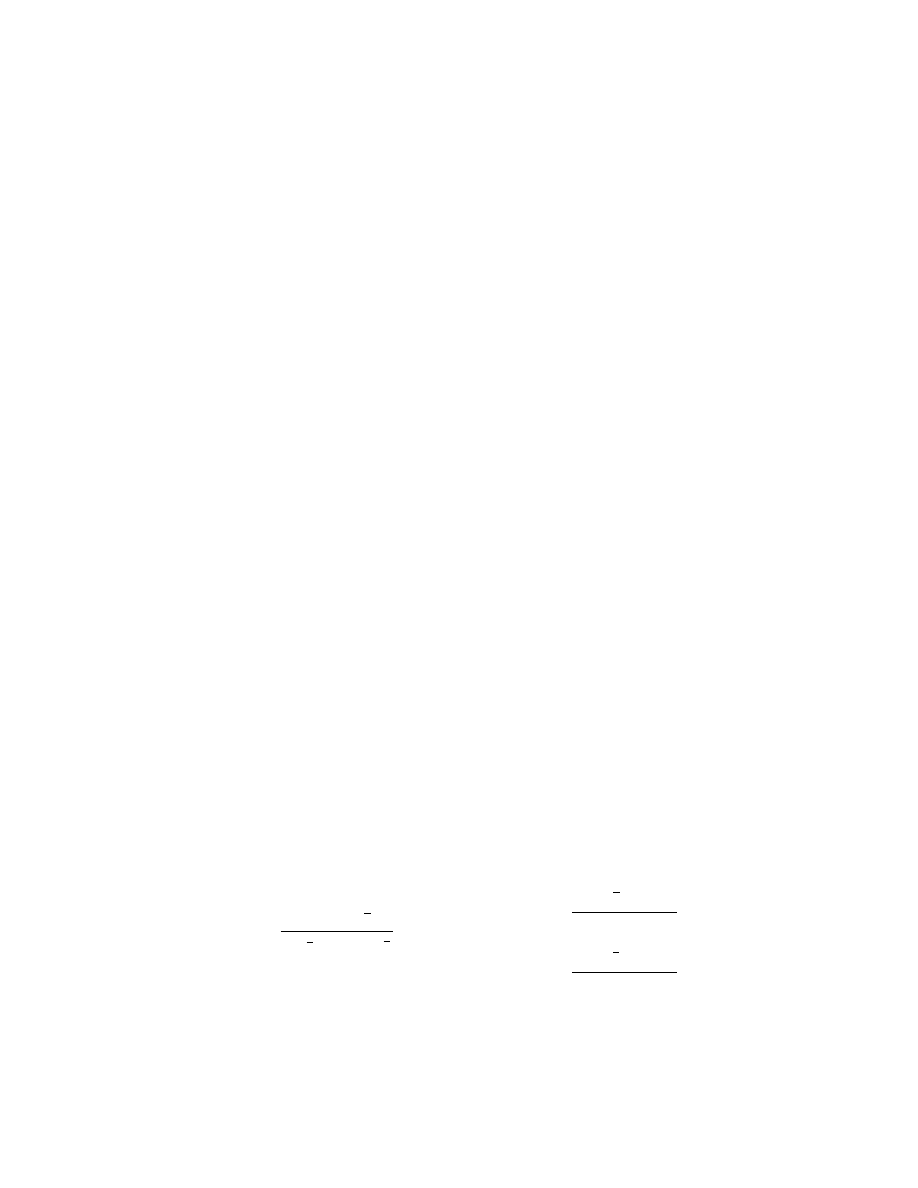
230
14 CFR Ch. I (1–1–14 Edition)
§ 23.535
V
S0
=seaplane stalling speed (knots) with
landing flaps extended in the appropriate
position and with no slipstream effect;
and
b=angle of dead rise at appropriate station.
(2) The unsymmetrical pressure dis-
tribution consists of the pressures pre-
scribed in paragraph (c)(1) of this sec-
tion on one side of the hull or main
float centerline and one-half of that
pressure on the other side of the hull or
main float centerline, in accordance
with figure 3 of appendix I of this part.
(3) These pressures are uniform and
must be applied simultaneously over
the entire hull or main float bottom.
The loads obtained must be carried
into the sidewall structure of the hull
proper, but need not be transmitted in
a fore and aft direction as shear and
bending loads.
[Doc. No. 26269, 58 FR 42161, Aug. 6, 1993; 58
FR 51970, Oct. 5, 1993]
§ 23.535
Auxiliary float loads.
(a)
General. Auxiliary floats and their
attachments and supporting structures
must be designed for the conditions
prescribed in this section. In the cases
specified in paragraphs (b) through (e)
of this section, the prescribed water
loads may be distributed over the float
bottom to avoid excessive local loads,
using bottom pressures not less than
those prescribed in paragraph (g) of
this section.
(b)
Step loading. The resultant water
load must be applied in the plane of
symmetry of the float at a point three-
fourths of the distance from the bow to
the step and must be perpendicular to
the keel. The resultant limit load is
computed as follows, except that the
value of L need not exceed three times
the weight of the displaced water when
the float is completely submerged:
L
C V
W
Tan
1 r
5
SO
S
y
2
3
2
3
2
3
=
+
(
)
2
2
β
where—
L=limit load (lbs.);
C
5
=0.0053;
V
S0
=seaplane stalling speed (knots) with
landing flaps extended in the appropriate
position and with no slipstream effect;
W=seaplane design landing weight in pounds;
b
s
=angle of dead rise at a station
3
⁄
4
of the
distance from the bow to the step, but
need not be less than 15 degrees; and
r
y
=ratio of the lateral distance between the
center of gravity and the plane of sym-
metry of the float to the radius of gyra-
tion in roll.
(c)
Bow loading. The resultant limit
load must be applied in the plane of
symmetry of the float at a point one-
fourth of the distance from the bow to
the step and must be perpendicular to
the tangent to the keel line at that
point. The magnitude of the resultant
load is that specified in paragraph (b)
of this section.
(d)
Unsymmetrical step loading. The re-
sultant water load consists of a compo-
nent equal to 0.75 times the load speci-
fied in paragraph (a) of this section and
a side component equal to 0.025 tan
b
times the load specified in paragraph
(b) of this section. The side load must
be applied perpendicularly to the plane
of symmetry of the float at a point
midway between the keel and the
chine.
(e)
Unsymmetrical bow loading. The re-
sultant water load consists of a compo-
nent equal to 0.75 times the load speci-
fied in paragraph (b) of this section and
a side component equal to 0.25 tan
b
times the load specified in paragraph
(c) of this section. The side load must
be applied perpendicularly to the plane
of symmetry at a point midway be-
tween the keel and the chine.
(f)
Immersed float condition. The re-
sultant load must be applied at the
centroid of the cross section of the
float at a point one-third of the dis-
tance from the bow to the step. The
limit load components are as follows:
vertical
PgV
aft
C PV (KV
)
2
side
C PV (KV
)
2
X
SO
2
Y
SO
2
2
3
2
3
=
=
=
where—
P=mass density of water (slugs/ft.
3
)
V=volume of float (ft.
3
);
C
X
=coefficient of drag force, equal to 0.133;
C
y
=coefficient of side force, equal to 0.106;
VerDate Mar<15>2010
10:12 Mar 18, 2014
Jkt 232046
PO 00000
Frm 00240
Fmt 8010
Sfmt 8010
Y:\SGML\232046.XXX
232046
EC28SE91.010</MATH>
EC28SE91.011</MATH>
pmangrum on DSK3VPTVN1PROD with CFR